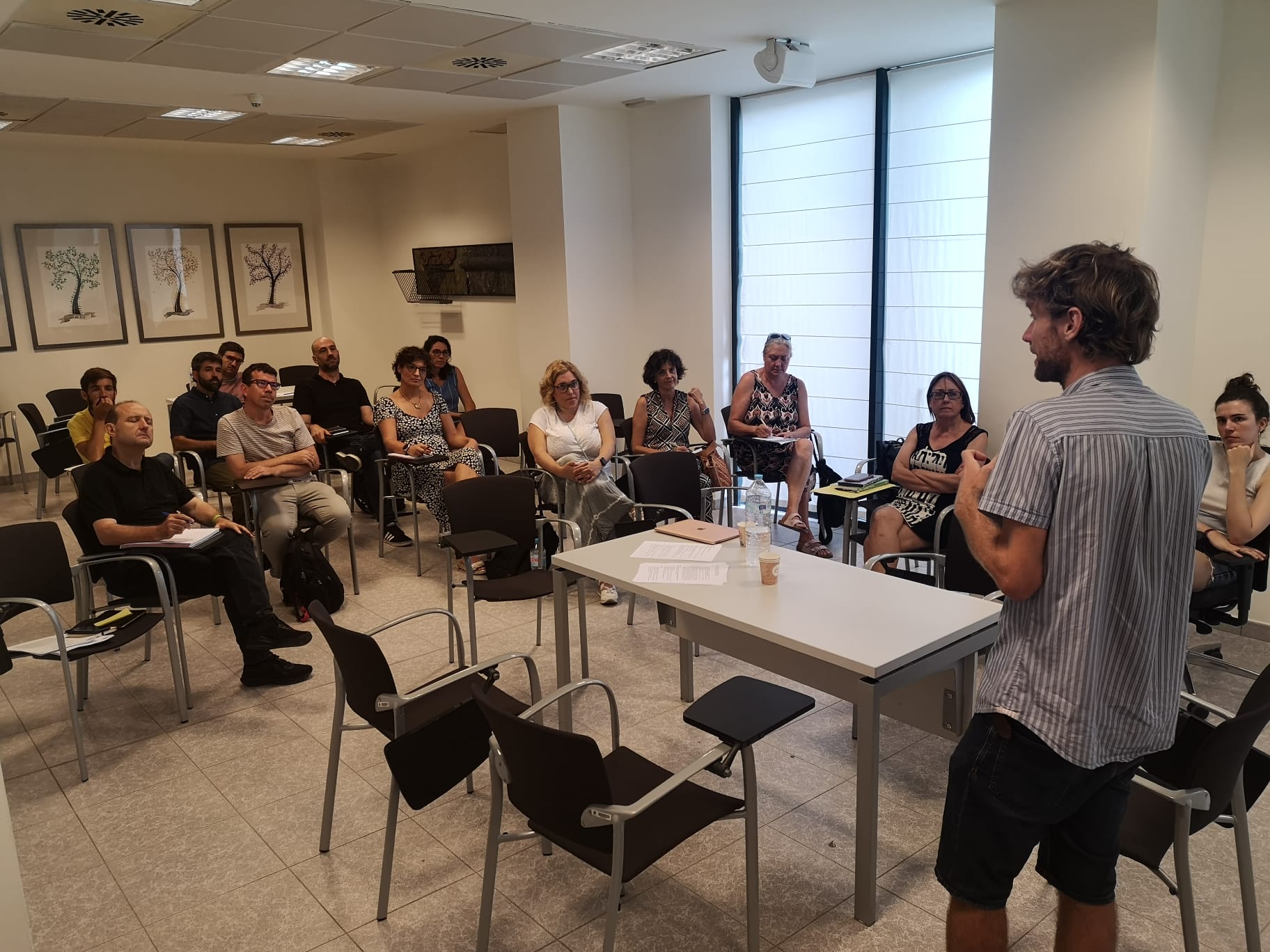The 19th of January 2024 took place the “Mobilisation and Mutual Learning event: advancing towards Responsible Research Practices in UJI” at Universitat Jaume I, Castellón, Spain.
The meeting was organised by UJI CATALISI members Ramón Feenstra, Laura Bernal, Carlota Carretero, and Elsa Gonzalez and it was attended by CATALISI members from APRE, UCC, UG, KTU, AUTH, AUMC, LUISS and also by some UJI researchers and technical staff. The goals of this event were, on the one hand, to explain the work that has been done at UJI regarding responsible research practices and research integrity and also present inspiring initiatives from other universities. On the other hand, discuss with the participants the ways in which UJI can promote a scale of indicators to measure performance on Open Access (OA) and also how to boost the involvement of UJI’s ethics committee with researchers.
On the first part of the event, three speakers shared their experience improving research assessment and research ethics structures in Spanish universities. First, Margarita Vergara (adjunct Vice-rector of Research at UJI) explained the work done at UJI regarding the transformation of research assessment criteria and also the upcoming challenges. Second, Elsa González Esteban (Vice-rector of Social Policies and CATALISI member) shared the work done in the framework of the ETHNA System project, where a set of tools for RRI were developed: an ethical code, an ethics committee, an ethical hotline and process indicators to report. Last, Alberto Pastor, from Miguel Hernández University (UMH), explained their experience implementing IRIU, a system to measure researchers’ adherence to the UMH guidelines for responsibility in research and also with the Sustainable Development Goals.
On the second part of the event, there was a co-creation session with the rest of the participants dedicated to advancing in the development of research ethics tools. During this session, moderated by Ramón Feenstra and Laura Bernal, CATALISI members and also UJI researchers and technical staff discussed the potential and also the obstacles for the implementation of a scale to measure researchers’ performance on OA and how to improve the work of the UJI ethics committee. Regarding the first topic, some questions such as the need for economic support, the need for a cultural change, making mandatory for projects with public funding to publish in OA or the promotion of role models and PhD teaming in spreading good practices in OA were brought up. Regarding the work of the ethics committee, it was suggested to implement fines or a system for reporting people who violate research integrity or to create a platform for complaints. Also, it was considered helpful for researchers to be able to see the state of the process of going through the ethics committee.
Finally, it is worth noting that, during this event, plenty of interesting ideas, reflections and discussions regarding the current state and the future of research ethics and research assessment came out. It also served to share the current state of this topic in the Spanish context and to suggest specific tools for improving its development.













